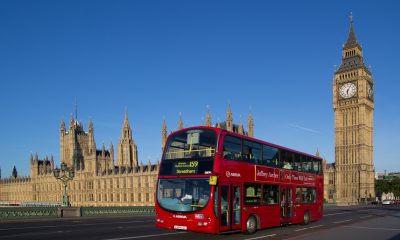World
Out in the World: LGBTQ news from Europe and Asia
Poland’s elections took place on Sunday, UK seeks to limit asylum seekers

Ireland
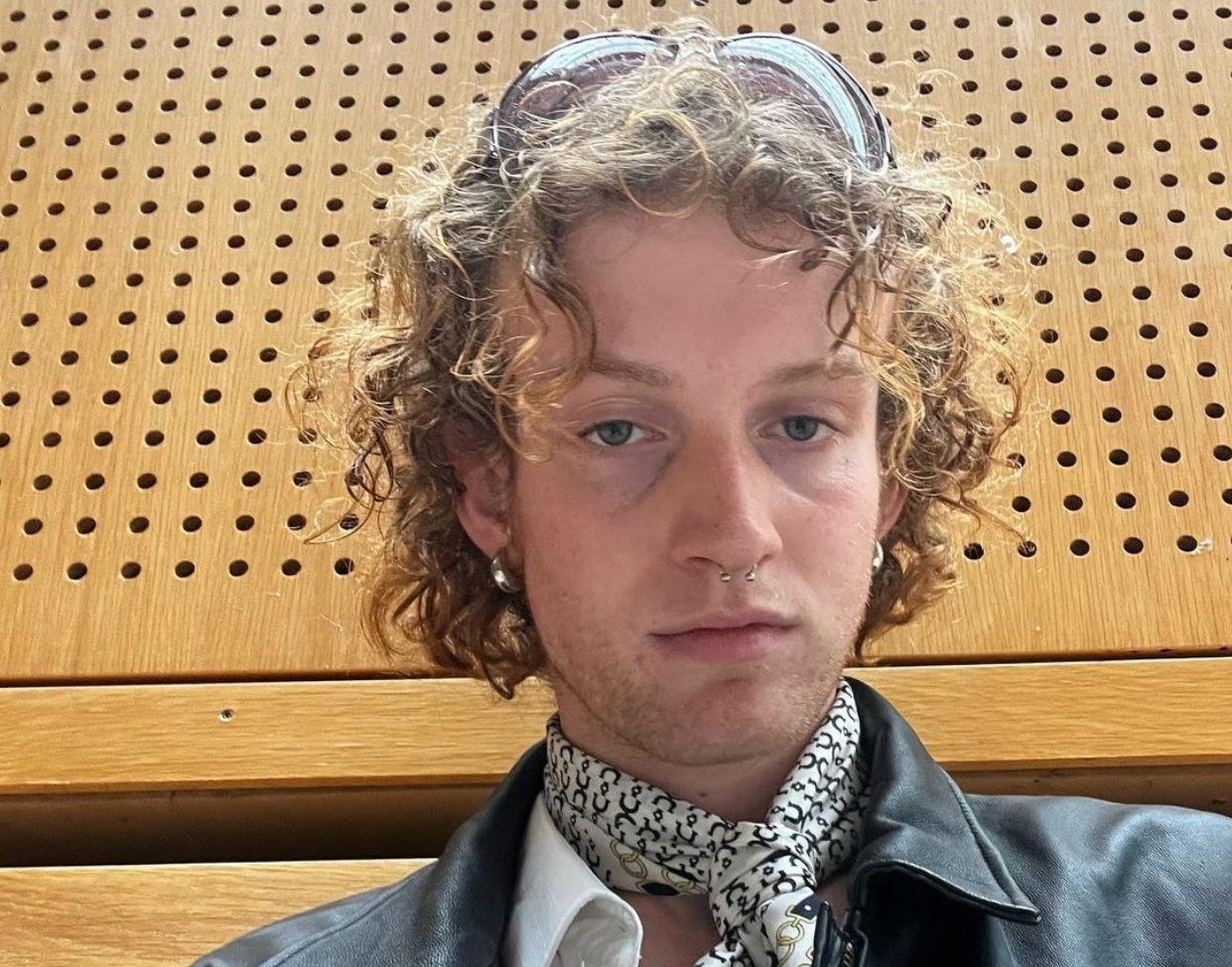
Ireland’s National Police Service is seeking information leading to the arrest of the unknown hit and run driver who struck and killed an openly queer 21-year-old University of Limerick journalism student on Oct 13.
Joe Drennan, a popular and respected student, was the editor-in-chief of Limerick Voice, the award-winning news platform and paper produced by journalism students at the University of Limerick. Drennan was also a contributing writer to Ireland’s LGBTQ media website and magazine GCN.
Dublin-based the Journal News reported that Drennan was standing waiting for a bus around 9.50 p.m., after he had finished a shift at a local restaurant at Dublin Road, Castletroy, Limerick, when a car that had, immediately beforehand, been involved in a collision with another car, as well as an alleged interaction with the police earlier on the night, struck and killed him.
The police said the driver of one of the cars “failed to remain at the scene” and that the driver of the second car, a male in his 40s and a female adult passenger, were taken to University Hospital Limerick for non life threatening injuries.
Drennan’s death has left his family, friends and fellow students and tutors at UL, shocked and distraught.
Paying tribute to Drennan on Sunday, Dr. Kathryn Hayes, course director of journalism and digital communication at the University of Limerick said: “We are absolutely devastated in the journalism department and in the wider UL community to learn of the tragic death of our student Joe Drennan. Our heartfelt sympathies are with Joe’s family at this terrible time and all of his classmates and many dear friends.”
Hayes said Drennan had been “an inspirational student and a hugely talented young journalist, who had a bright career ahead.”
Poland
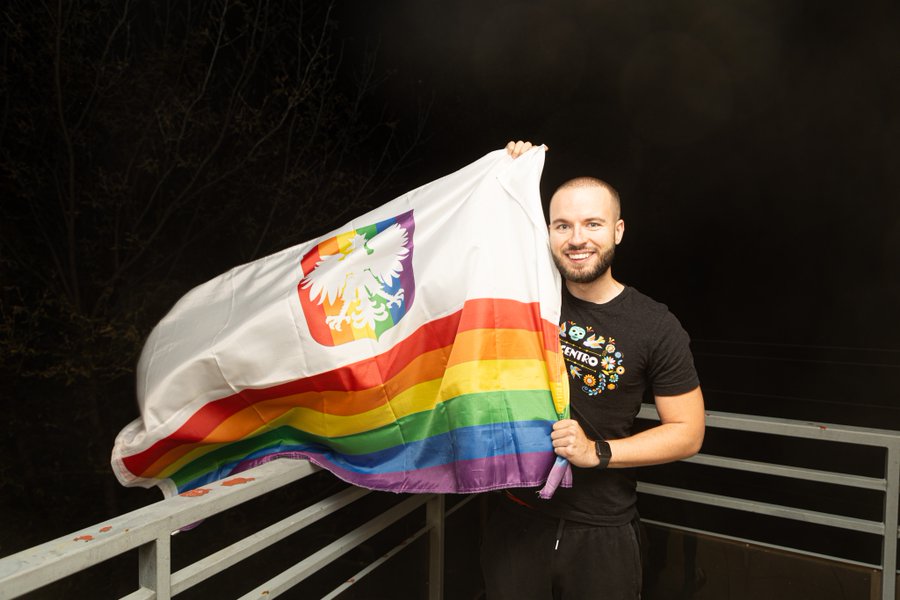
The country’s right-wing populist Law and Justice party, known as PiS, appears to have lost their parliamentary majority in the critical elections held Sunday. The final tally has yet to be announced.
This would end eight years of rule that has seen the Polish government repeatedly clash with the European Union over the rule of law, media freedom, migration and LGBTQ rights since Law and Justice (PiS) came to power in 2015.
Opposition parties led by 66-year-old Donald Tusk’s Civic Coalition have vowed to mend ties with Brussels and undo reforms critics say undermine democratic standards.
Tusk, a former European Council president, is aiming to the PiS rule under Deputy Prime Minister Jaroslaw Kaczynski.
“Poland won, democracy has won,” Tusk told a large crowd of jubilant supporters in what felt like a victory rally in Warsaw. “This is the end of the bad times, this is the end of the PiS government.”
Ipsos polling reported a larger proportion of 18-29 year-olds had turned out to vote than over-60s and election officials said that turnout was probably 72.9 percent, the highest since the fall of communism in 1989.
The BBC reported that President Andrzej Duda, an ally of the socially conservative PiS, would normally ask the biggest party to form a government. However with vote as close as it, if PiS fails to win a vote of confidence, then the Parliament would appoint a new prime minister who would then choose a government and also have to win a confidence vote in Parliament as well.
Leading Polish LGBTQ rights activist Bart Staszewski posted a statement on social media:
“I am gay, I am Polish and I am proud today. After eight years of hate against people like me, LGBT+ people, the creation of LGBT free zones, attacks on women and minorities, Poland is BACK on the path of democracy and the rule of law. This is also end of political trails of human rights activists. This is just the beginning of reclaiming of our country. The fight is ahead but we are breathing fresh air today. After eight years of government hatred, authoritarianism is over in Poland. I still can’t believe it … The nightmare ends …”
Switzerland
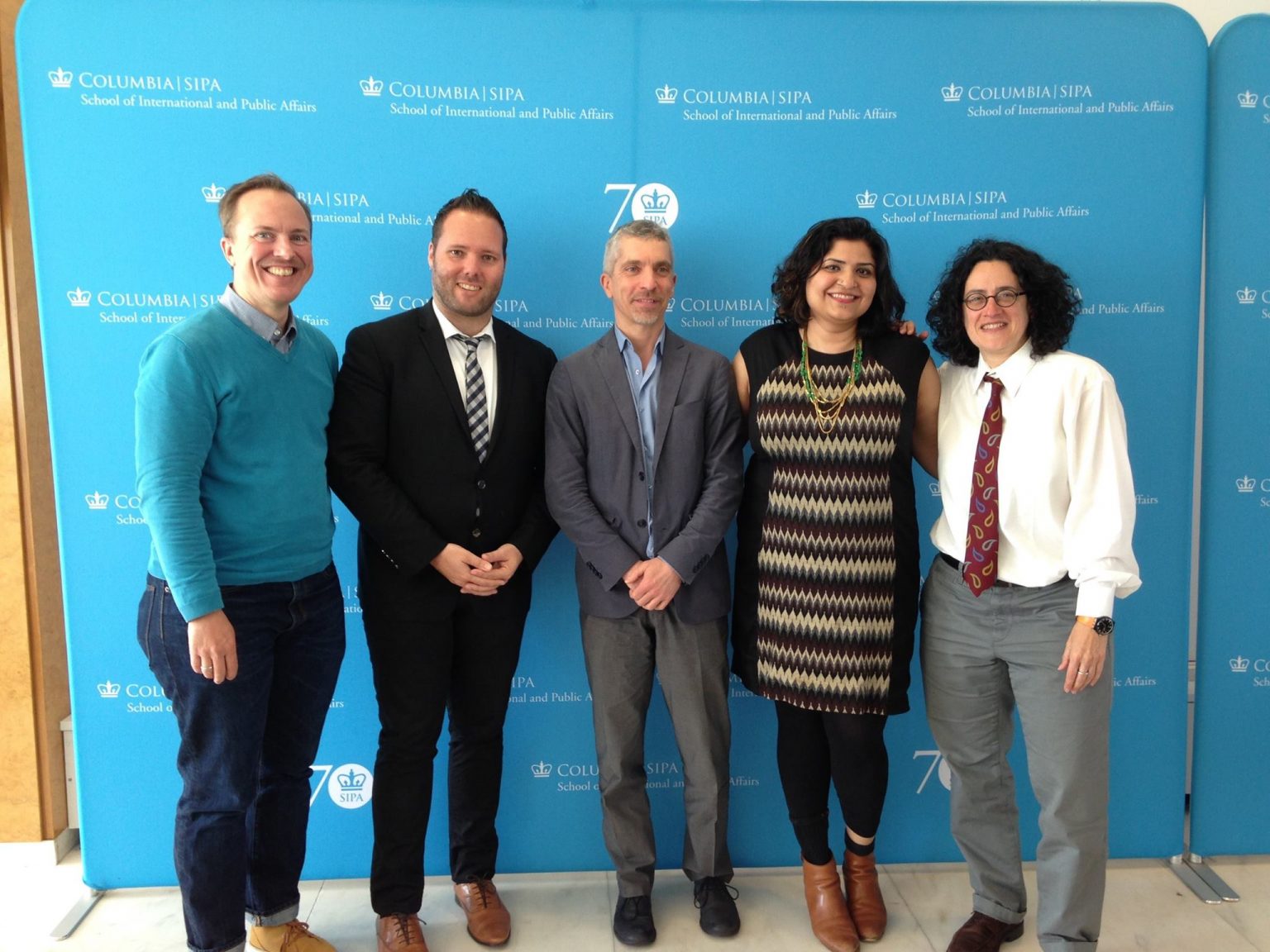
The U.N. Human Rights Council has named Graeme Reid, director of LGBT Rights for Human Rights Watch, as the next Independent Expert on Sexual Orientation and Gender Identity for the UN organization.
Originally from South Africa, Reid is the third person ever to be appointed to hold the #UnitedNations mandate dedicated to addressing specific human rights violations against #LGBT and gender diverse persons, following Vitit Muntarbhorn from Thailand (2016-2017) and Victor Madrigal-Borloz from Costa Rica (2017-2023).
Reid is an expert on LGBTQ rights. He has conducted research, taught and published extensively on gender, sexuality, LGBTQ issues and HIV/AIDS.
Before joining Human Rights Watch in 2011, Reid was the founding director of the Gay and Lesbian Archives of South Africa, a researcher at the Wits Institute for Social and Economic Research and a lecturer in LGBTQ studies at Yale University, where he continues to teach as a visiting lecturer.
An anthropologist by training, Reid received a master’s from the University of the Witwatersrand in Johannesburg and a PhD from the University of Amsterdam.
Turkey

Turkish President Recep Tayyip Erdoğan, speaking before the Congress gathering of his Islamist-rooted AK Party, which currently runs the nation’s government, said earlier this month that “he did not recognize LGBT and vowed to combat perverse trends he stated are aimed to destroy the institution of family.”
Erdoğan, who has held office since 2014, has a lengthy record of anti-LGBTQ statements who has frequently labeled members of the LGBTQ community as “deviants.” At the direction of his government, police agencies across the country have cracked down on Pride events and marches.
Last April, Erdoğan, who was campaigning for reelection, told a rally of supporters in the Aegean city of Izmir, “In this nation, the foundations of the family are stable. LGBT will not emerge in this country. Stand up straight, like a man: that is how our families are,” he added.
While being LGBTQ is not a crime in Turkey, hostility to it is widespread. Same-sex marriage, adoption, surrogacy and IVF are all illegal in the country, as is being openly gay or lesbian person serving in the military.
LGBTQ people are not protected against discrimination in employment, education, housing, healthcare, public accommodations or credit and police crackdowns often at the direction of the government have become tougher over the years.
France

Eric Zemmour, the far-right political leader and former presidential candidate was convicted and fined for for homophobic statements he uttered while being interview on the French national news network CNews program Face à l’info hosted by Christine Kelly four years ago in October 2019.
French online news magazine Têtu.com reported that The Stop Homophobia association had filed a complaint against comments made by Zemmour on the Oct. 15, 2019, show. Speaking about LGBTQ rights during a long debate with Nicolas Bouzou, Zemmour declared: “We have the whims of a small minority which has control over the State and which enslaves it for its own benefit and which will first disintegrate the society, because we are going to have children without a father and I have just told you that it is a catastrophe and, secondly, who is going to make all the other French people pay for his whims.”
The judge of the Cour de Cassation, the highest court of criminal and civil appeal in France, with the power to quash the decisions of lower courts, ruled that Zemmour had acted with“ Behavior contrary to the general interest.” In his decision the judge noted:
“The comments are contemptuous of the people they target, who see their desire for a child reduced to a selfish ‘whim’ and even take on an outrageous dimension when it is attributed to them, to satisfy it, to have recourse to the subjugation of the state apparatus.”
“In this, homosexual people find themselves disqualified in the eyes of the public for who they are, their sexual orientation necessarily inducing, according to the defendant, behavior contrary to the general interest,” he added.
Zemmour was sentenced to a fine of 4,000 euros ($4,223.42).
United Kingdom
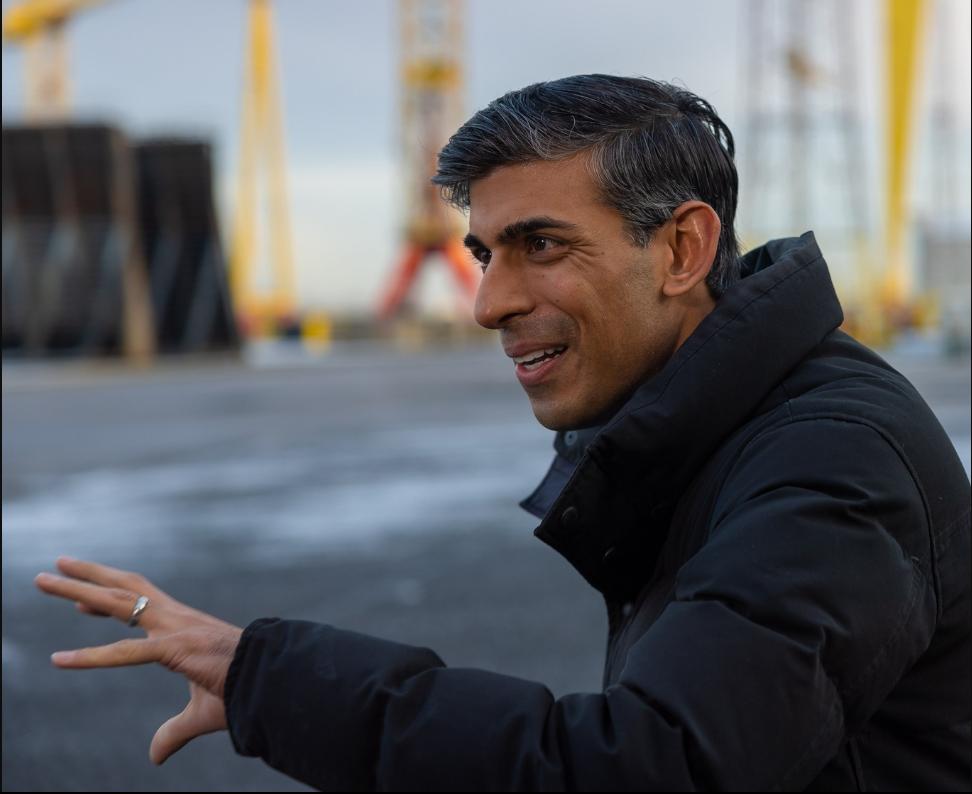
The government of Prime Minister Rishi Sunak is receiving copious amounts of criticism and outrage among the nation’s LGBTQ community and its allies for the anti-LGBTQ refugee asylum seekers and transphobic stance that has been taken by various government ministers including Sunak himself.
In a recent speech delivered last month on Sept. 26 at the American Enterprise Institute in D.C., Home Secretary Suella Braverman addressing the government’s policies towards immigration told the audience:
“I think most members of the public would recognize those fleeing a real risk of death, torture, oppression or violence as being in need of protection. However, as case law has developed, what we have seen in practice is an interpretive shift away from persecution in favor of something more akin to a definition of discrimination. And there has been a similar shift away from a well-founded fear towards a credible or plausible fear, the practical consequence of which has been to expand the number of those who may qualify for asylum, and to lower the threshold for doing so.
“Let me be clear, there are vast swaths of the world where it is extremely difficult to be gay, or to be a woman, where individuals are being persecuted, it is right that we offer sanctuary, but we will not be able to sustain an asylum system, if in effect, simply being gay, or a woman, or fearful of discrimination in your country of origin is sufficient to qualify for protection.
Article 31 of the refugee convention makes clear that it is intended to apply to individuals coming directly, directly from a territory where their life was threatened. It also states where people are crossing borders without permission, they should present themselves without delay to the authorities, and must show good cause for any illegal entry. The U.K., along with many others, including America, interpret this to mean that people should seek refuge and claim asylum in the first safe country that they reach. But NGOs and others, including the U.N. Refugee Agency, contest this. The status quo where people are able to travel through multiple safe countries and even reside in safe countries for years, while they pick and choose their preferred destination to claim asylum is absurd and unsustainable.
Nobody entering the U.K. by boat from France is fleeing imminent peril. None of them has good cause for illegal entry. The vast majority have passed through multiple other safe countries, and in some instances have resided in safe countries for several years. There was a strong argument that they should cease to be treated as refugees during their onward movement. There are also many whose journeys originate from countries that the public would consider to be manifestly safe like Turkey, or Albania or India. In these instances, most are simply economic migrants gaming the asylum system to their advantage.”
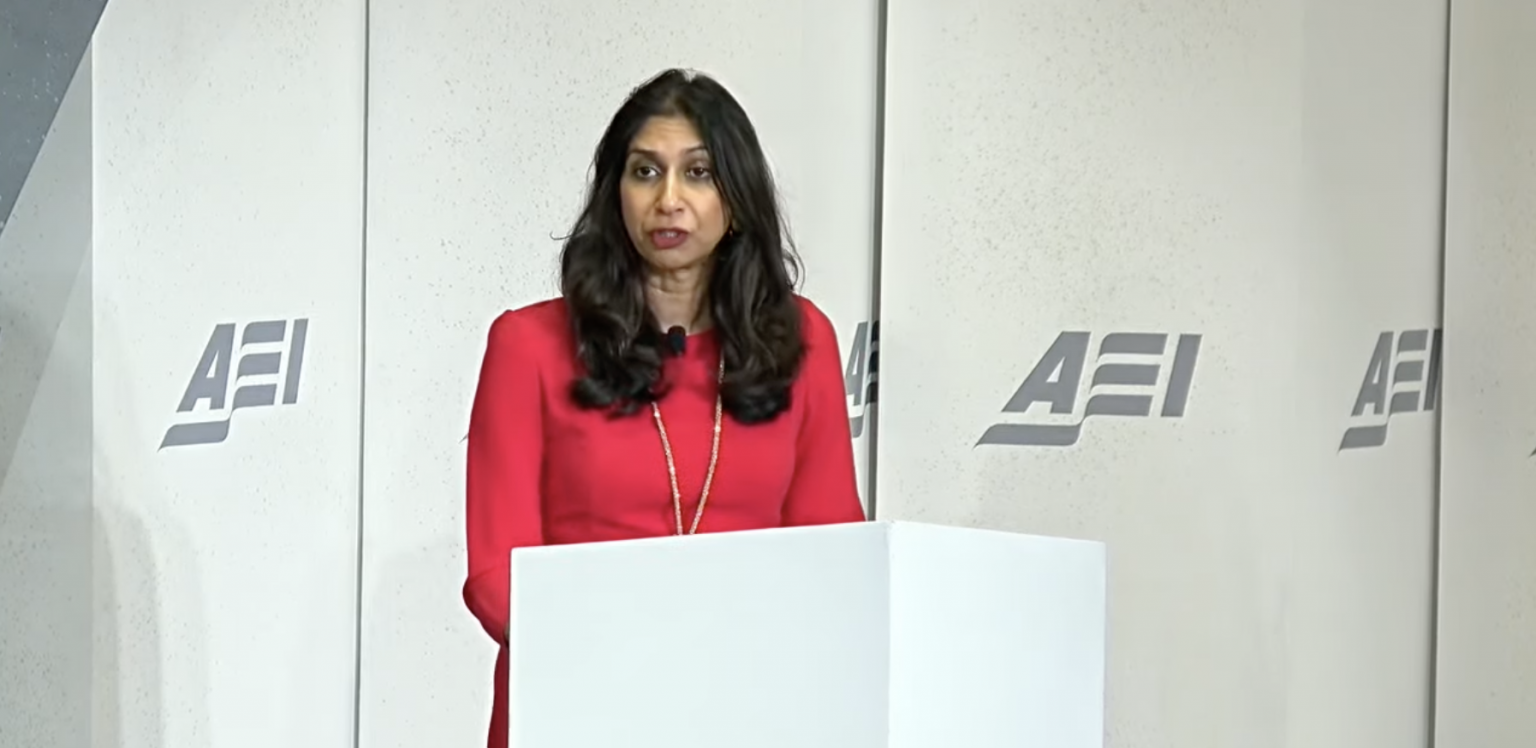
Braverman’s specific remarks portraying Turkey as “manifestly” safe drew harsh critique from LGBTQ groups in Britain pointing out that Erdoğan has publicly labeled LGBTQ people “deviants.”
PinkNewsUK reported that 246 human rights groups banded together to demand that the UK government respect the lives of women and LGBTQ people after Braverman’s D.C. speech.
A joint letter produced by LGBTQ charity Stonewall, and signed by organizations like Amnesty, Oxfam, Refugee Council, Rainbow Migration, and End Violence Against Women Coalition, calls on Sunak to reaffirm the UK’s commitment to protecting LGBTQ people and women worldwide.
The letter also rejects Braverman’s suggestion that LGBTQ people and women are misusing their identities to claim asylum in the UK.
On Oct. 6, the UK government released its annual report that revealed there were 145,214 hate crimes recorded by police in England and Wales in 2022-2023, a slight 5 percent decrease compared to the previous year.
In a briefing outlining new hate crime figures for the UK, the Home Office said that transgender issues had been “heavily discussed by politicians, the media and on social media” over the last year, which it said “may have led to an increase in these offenses.”
It added that the government’s focus on transgender issues could also have led to “more awareness in the police in the identification and recording of these crimes.”
Stonewall, the UK’s largest LGBTQ charity organization, noted that this recent report’s data comes in a continuing surge in reports of anti-LGBTQ and anti-transgender hate in recent months across Britain, Wales and Northern Ireland.
The blame LGBTQ advocates in the UK say also lies with the Prime Minister’s transphobic public comments. At the Conservative Party conference on Oct. 4, the prime minister claimed that Brits are being “bullied” into believing that “people can be any sex they want to be.” He then said it was “common sense” that a “man is a man and a woman is a woman.”
Robbie de Santos, director of external affairs at Stonewall, told PinkNewsUK he is concerned that political figures are dehumanizing LGBTQ people, which “legitimizes violence” instead of acting “seriously or quickly enough” to tackle the rising tide of hate.
Philippines
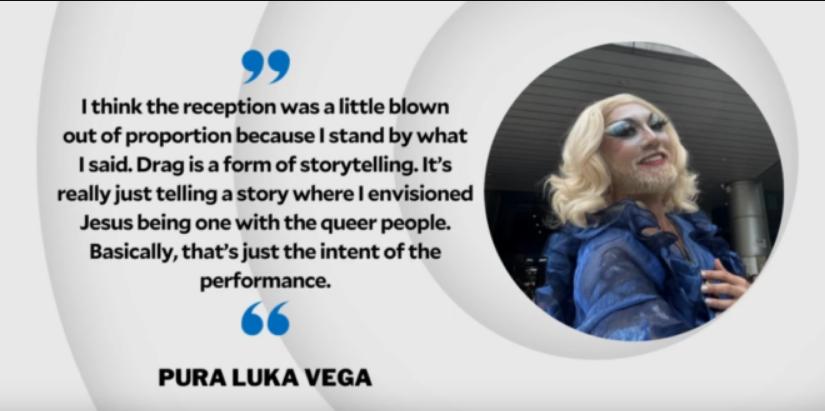
A 33-year-old drag queen, who is currently incarcerated in a Manila jail, is facing up to 12 years in prison under the Catholic-majority country’s obscenity laws for his performance dressed as Jesus Christ, performing a rock version of the Lord’s Prayer in Tagalog.
Amadeus Fernando Pagente, who performs under the stage/drag name Pura Luka Vega, was arrested by Manila police earlier this month after the Philippines for Jesus Movement, comprising Protestant church leaders, registered the first criminal complaint with the Manila Prosecutor’s Office in July of this year followed in August by a second complaint was then filed in August by Nazarene Brotherhood, a Catholic group the BBC reported.
A video of the performance by Pagente had sparked criminal complaints by the Christian groups.

In interviews with AFP, supporters of Pagente are calling for his release with the #FreePuraLukaVega hash tag, arguing that “drag is not a crime.” Some compared the performer’s predicament with alleged murderers and sex crime offenders, whom they claimed remain free and have not been justly dealt with.
Pagente himself told AFP: “The arrest shows the degree of homophobia” in the Philippines. “I understand that people call my performance blasphemous, offensive or regrettable. However, they shouldn’t tell me how I practice my faith or how I do my drag.”
Ryan Thoreson, a specialist at the Human Rights Watch’s LGBT rights program, also called for the charges against Pagente to be dropped.
“Freedom of expression includes artistic expression that offends, satirizes, or challenges religious beliefs,” Thoreson told the BBC.
Additional reporting from GCN, The Journal, BBC, PinkNewsUK, and Têtu.com
India
Anaya Bangar challenges ban on trans women in female cricket teams
Former Indian cricketer Sanjay Bangar’s daughter has received support

Anaya Bangar, the daughter of former Indian cricketer Sanjay Bangar, has partnered with the Manchester Metropolitan University Institute of Sport in the U.K. to assess her physiological profile following her gender-affirming surgery and undergoing hormone replacement therapy.
From January to March 2025, the 23-year-old underwent an eight-week research project that measured her glucose levels, oxygen uptake, muscle mass, strength, and endurance after extensive training.
The results, shared via Instagram, revealed her metrics align with those of cisgender female athletes, positioning her as eligible for women’s cricket under current scientific standards. Bangar’s findings challenge the International Cricket Council’s 2023 ban on transgender athletes in women’s cricket, prompting her to call for a science-based dialogue with the Board of Control for Cricket in India and the ICC to reform policies for transgender inclusion.
“I am talking with scientific evidence in my hand,” Bangar said in an interview posted to her Instagram page. “So, I hope, this makes an impact and I will be hoping to BCCI and ICC talking with me and discussing this further.”
On Nov. 21, 2023, the ICC enacted a controversial policy barring trans women from international women’s cricket. Finalized after a board meeting in Ahmedabad, India, the regulation prohibits any trans player who has experienced male puberty from competing, irrespective of gender-affirming surgery or hormone therapy. Developed through a 9-month consultation led by the ICC’s Medical Advisory Committee, the rule aims to safeguard the “integrity, safety, and fairness” of women’s cricket but has drawn criticism for excluding athletes like Canada’s Danielle McGahey, the first trans woman to play internationally. The policy, which allows domestic boards to set their own rules, is slated for review by November 2025.
Bangar shared a document on social media verifying her participation in a physiological study at the Manchester Metropolitan University Institute of Sport, conducted from Jan. 20 to March 3, 2025, focused on cricket performance. The report confirmed that her vital metrics — including haemoglobin, blood glucose, peak power, and mean power — aligned with those of cisgender female athletes. Initially, her fasting blood glucose measured 6.1 mmol/L, slightly above the typical non-diabetic range of 4.0–5.9 mmol/L, but subsequent tests showed it normalized, reinforcing the study’s findings that her physical profile meets female athletic standards.
“I am submitting this to the BCCI and ICC, with full transparency and hope,” said Bangar. “My only intention is to start a conversation based on facts not fear. To build space, not divide it.”
In a letter to the BCCI and the ICC, Bangar emphasized her test results from the Manchester Metropolitan University study. She explained that the research aimed to assess how hormone therapy had influenced her strength, stamina, haemoglobin, glucose levels, and overall performance, benchmarked directly against cisgender female athletic standards.
Bangar’s letter to the BCCI and the ICC clarified the Manchester study was not intended as a political statement but as a catalyst for a science-driven dialogue on fairness and inclusion in cricket. She emphasized the importance of prioritizing empirical data over assumptions to shape equitable policies for trans athletes in the sport.
Bangar urged the BCCI, the world’s most influential cricket authority, to initiate a formal dialogue on trans women’s inclusion in women’s cricket, rooted in medical science, performance metrics, and ethical fairness. She called for the exploration of eligibility pathways based on sport-specific criteria, such as haemoglobin thresholds, testosterone suppression timelines, and standardized performance testing. Additionally, she advocated for collaboration with experts, athletes, and legal advisors to develop policies that balance inclusivity with competitive integrity.
“I am releasing my report and story publicly not for sympathy, but for truth. Because inclusion does not mean ignoring fairness, it means measuring it, transparently and responsibly,” said Bangar in a letter to the BCCI. “I would deeply appreciate the opportunity to meet with you or a representative of the BCCI or ICC to present my findings, discuss possible policy pathways, and work towards a future where every athlete is evaluated based on real data, not outdated perceptions.”
Before her transition, Bangar competed for Islam Gymkhana in Mumbai and Hinckley Cricket Club in the U.K., showcasing her talent in domestic cricket circuits. Her father, Sanjay Bangar, was a dependable all-rounder for the Indian national cricket team from 2001 to 2004, playing 12 test matches and 15 One Day Internationals. He later served as a batting coach for the Indian team from 2014 to 2019, contributing to its strategic development.
Cricket in India is a cultural phenomenon, commanding a fanbase of more than 1 billion, with more than 80 percent of global cricket viewership originating from the country.
The International Cricket Council, the sport’s governing body, oversees 12 full member nations and more than 90 associate members, with the U.S. recently gaining associate member status in 2019 and co-hosting the 2024 ICC Men’s T20 World Cup. The BCCI generated approximately $2.25 billion in revenue in the 2023–24 financial year, primarily from the Indian Premier League, bilateral series, and ICC revenue sharing. The ICC earns over $3 billion from media rights in India alone for the 2024–27 cycle, contributing nearly 90 percent of its global media rights revenue, with the BCCI receiving 38.5 percent of the ICC’s annual earnings, approximately $231 million per year.
Women’s cricket in India enjoys a growing fanbase, with over 300 million viewers for the Women’s Premier League in 2024, making it a significant driver of the sport’s global popularity. The International Cricket Council oversees women’s cricket in 12 full member nations and over 90 associate members, with the U.S. fielding a women’s team since gaining associate status in 2019 and competing in ICC events like the 2024 Women’s T20 World Cup qualifiers. The BCCI invests heavily in women’s cricket, allocating approximately $60 million annually to the WPL and domestic programs in 2024–25, while contributing to the ICC’s $20 million budget for women’s cricket development globally. India’s media market for women’s cricket, including WPL broadcasting rights, generated $120 million in 2024, accounting for over 50 percent of the ICC’s women’s cricket media revenue.
“As a woman, I feel when someone says that they are women, then they are, be trans or cis. A trans woman is definitely the same as a cis woman emotionally and in vitals, and specially, when someone is on hormone replacement therapy. Stopping Anaya Bangar from playing is discrimination and violation of her rights. It is really sad and painful that every transwoman need to fight and prove their identity everywhere,” said Indrani Chakraborty, an LGBTQ rights activist and a mother of a trans woman. “If ICC and BCCI is stopping her from playing for being transgender, then I will say this to be their lack of awareness and of course the social mindsets which deny acceptance.”
Chakraborty told the Blade that Bangar is an asset, no matter what. She said that the women’s cricket team will only benefit by participation, but the discriminating policies are the hindrance.
“Actually the transgender community face such discrimination in every sphere. In spite of being potent, they face rejection. This is highly inhuman. These attitudes is regressive and will never let to prosper. Are we really in 2025?,” said Chakraborty. “We, our mindset and the society are the issues. We, as a whole, need to get aware and have to come together for getting justice for Anaya. If today, we remain silent, the entire community will be oppressed. Proper knowledge of gender issues need to be understood.”
The BCCI and the International Cricket Council have not responded to the Blade’s repeated requests for comment.
El Salvador
La marcha LGBTQ desafía el silencio en El Salvador
Se realizó el evento en San Salvador bajo la lluvia, pero con orgullo

SAN SALVADOR, El Salvador — El reloj marcaba el mediodía cuando los primeros colores del arcoíris comenzaron a ondear frente a la emblemática Plaza del Divino Salvador del Mundo. A pesar de la incertidumbre generada en redes sociales, donde abundaban los rumores sobre una posible cancelación de la marcha por la diversidad sexual, la ciudad capital comenzaba a llenarse de esperanza, de resistencia y de orgullo.
Este año, la Marcha del Orgullo LGBTQ+ en El Salvador se desarrolló en un contexto tenso, en medio de un clima político que reprime y silencia a las voces disidentes.
“Aunque las estadísticas digan que no existimos, viviendo en El Salvador, un país donde hoy, después de décadas de avances, defender los derechos humanos es de nuevo una causa perseguida, criminalizada y silenciada”, afirmaron representantes de la Federación Salvadoreña LGBTQ+.
A pesar de la cancelación del festival cultural que usualmente acompaña la marcha, los colectivos decidieron seguir adelante con la movilización, priorizando el sentido original de la actividad: salir a las calles para visibilizarse, exigir respeto a sus derechos y recordar a quienes ya no están.
A la 1:30 p.m., una fuerte lluvia comenzó a caer sobre la ciudad. Algunas de las personas presentes corrieron a refugiarse, mientras otras, debajo de sombrillas y de los escasos árboles en la plaza, decidieron mantenerse firmes. Los comentarios pesimistas no se hicieron esperar: “a lo mejor la cancelan por el clima”, “no se ve tanta gente como otros años”. Sin embargo, lo que siguió fue una muestra de resistencia: a las 2:05 p.m. las voces comenzaron a llamar a tomar las calles.
Visibilidad como resistencia
La marcha arrancó bajo una llovizna persistente. La Avenida Roosevelt y la Alameda Juan Pablo II se tiñeron de colores con banderas arcoíris, trans, lésbicas, bisexuales y otras que representan a los diversos sectores de la población LGBTQ. Cada bandera alzada fue un acto político, cada paso una declaración de existencia.
Desde la Plaza del Divino Salvador del Mundo hasta la Plaza Gerardo Barrios, frente a Catedral Metropolitana y el Palacio Nacional, la marcha se convirtió en un carnaval de dignidad. Carteles con frases como “El amor no se reprime”, “Mi existencia no es delito” o “Marcho por quien ya no puede hacerlo” se alzaron entre las multitudes.
La movilización fue también un espacio para recordar a quienes han perdido la vida por la discriminación y el rechazo. Familias que marcharon por hijos, hijas o amigues que se suicidaron a causa del estigma. Personas que caminaron por quienes aún viven en el miedo, por quienes no pudieron salir del clóset, por quienes se han ido del país huyendo de la violencia.
Arte, fe y rebeldía
Una de las escenas más llamativas fue protagonizada por Nelson Valle, un joven gay que marchó vestido como sacerdote.
“Hay muchas personas que secretamente asisten a ritos religiosos como en Semana Santa, y les gusta vivir en lo oculto. Pero la fe debe ser algo libre porque Dios es amor y es para todos”, dijo.
Valle utilizó su vestimenta como una forma de protesta contra las estructuras religiosas que aún condenan la diversidad sexual.
“Un ejemplo de persona que abrió el diálogo del respeto fue el papa Francisco, abrió la mente y muy adelantado a su tiempo, porque dejó claro que hay que escuchar a toda persona que quiere encontrar a Dios”, agregó.
La marcha también incluyó bandas musicales, grupos de cachiporristas, carrozas artísticas, colectivos provenientes de distintos puntos del país, y manifestaciones de orgullo en todas sus formas. Fue un mosaico cultural que mostró la riqueza y diversidad de la población LGBTQ en El Salvador.

Una lucha que persiste
Las organizaciones presentes coincidieron en su mensaje: la lucha por la igualdad y el reconocimiento no se detiene, a pesar de los intentos del Estado por invisibilizarlos.
“Nuestros cuerpos se niegan a ser borrados y a morir en la invisibilidad de registros que no guardan nuestros nombres ni nuestros géneros”, declararon representantes de la Federación.
Además, agregaron: “Desde este país que nos quiere callar, levantamos nuestras voces: ¡La comunidad LGBTIQ+ no se borra! ¡El Salvador también es nuestro! Construyamos, entre todes, un país donde podamos vivir con Orgullo.”
El ambiente fue de respeto, pero también de desconfianza. La presencia de agentes policiales no pasó desapercibida. Aunque no hubo reportes oficiales de violencia, varias personas expresaron su temor por posibles represalias.
“Marchar hoy es también un acto de valentía”, comentó Alejandra, una joven lesbiana que viajó desde Santa Ana para participar. “Pero tenemos derecho a vivir, a amar, a soñar. Y si nos detenemos, les damos la razón a quienes nos quieren ver en silencio.”
Rumbo al futuro
Concluida la marcha frente a Catedral y el Palacio Nacional, muchas personas permanecieron en la plaza compartiendo abrazos, fotos y palabras de aliento. No hubo festival, no hubo escenario, pero hubo algo más valioso: una comunidad que sigue viva, que sigue resistiendo.
Los retos son muchos: falta de leyes de protección y que apoye las identidades de las personas trans, discriminación laboral, violencia por prejuicio, rechazo familiar, y una narrativa estatal que pretende que no existen. Pero la marcha del 28 de junio demostró que, aunque el camino sea cuesta arriba, la dignidad y el orgullo no se borran.
La lucha por un El Salvador más justo, más plural y más inclusivo continúa. En palabras de uno de los carteles más llamativos de ese día: “No estamos aquí para pedir permiso, estamos aquí para recordar que también somos parte de este país”.
Hungary
Upwards of 100K people march in Budapest Pride
Participants defined Hungarian government’s ban on public LGBTQ events
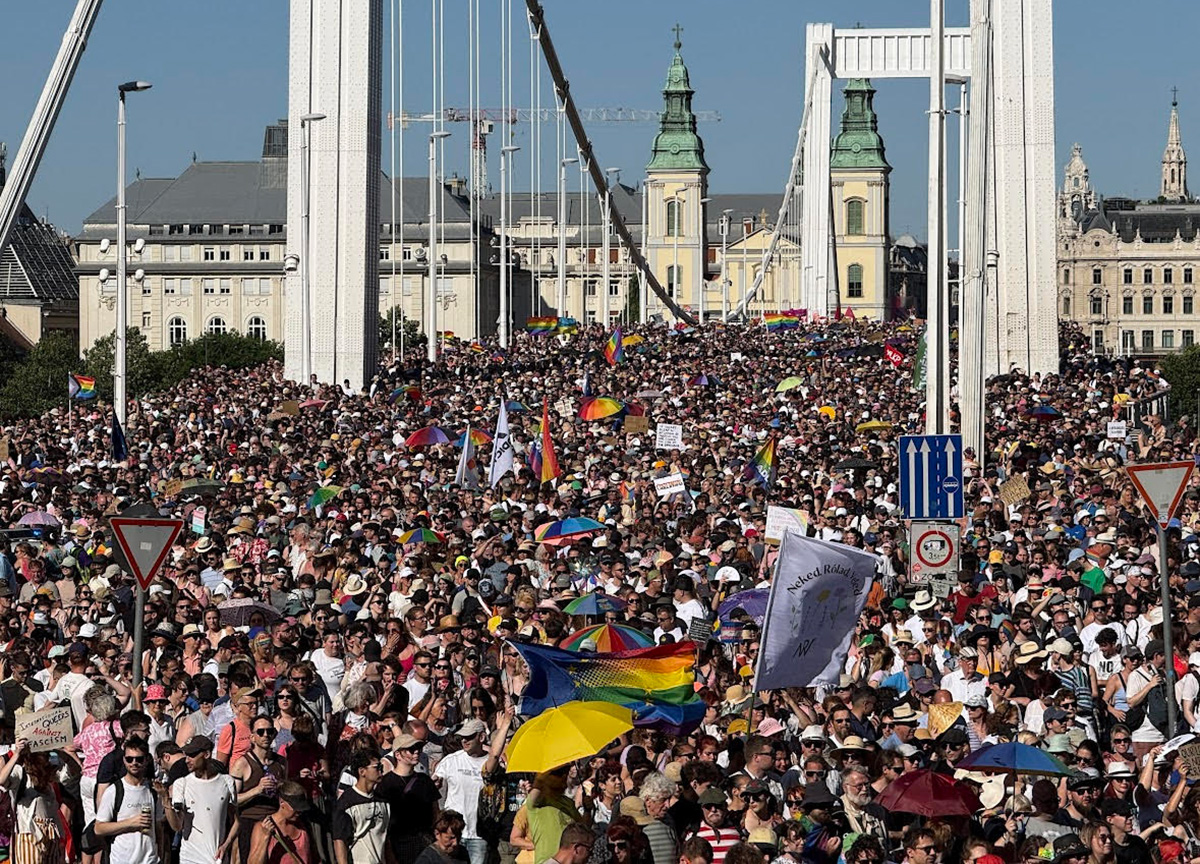
More than 100,000 people on Saturday defied the Hungarian government’s ban on public LGBTQ events and participated in the 30th annual Budapest Pride parade.
The New York Times published a picture that shows throngs of people marching on Budapest’s Erzsébet Bridge over the Danube River. Openly gay MEP Krzysztof Śmiszek, who was previously Poland’s deputy justice minister, is among the dozens of European lawmakers who participated in the march that began at Budapest City Hall.
The New York Times reported Hungarian police officers stood along the march, but they did not try to stop it. Śmiszek described the march to the Washington Blade as “beautiful and huge.”
“[It was] very peaceful and political,” he said.
Prime Minister Viktor Orbán and his Fidesz-KDNP coalition government have faced widespread criticism over its anti-LGBTQ crackdown.
Hungarian lawmakers in March passed a bill that bans Pride events and allow authorities to use facial recognition technology to identify those who participate in them. MPs in April amended the Hungarian constitution to ban public LGBTQ events.
Budapest Mayor Gergely Karácsony endorsed the march, even though Orbán’s government threatened to arrest him and fine participants.
“Today a country shows that no ruling party can tell it on what topic, for what cause it is allowed to march and why not,” said Budapest Pride President Viktória Radványi on Saturday in a Facebook post. “A country demonstrates that whoever will be in government can count on us: dedicated, persistent citizens intolerant to oppression, who will organize themselves and stand against tyranny with their heads held high.”
More than two dozen activists in D.C. who protested outside the Hungarian Embassy on Friday expressed their support for Budapest Pride.
(Washington Blade video by Michael K. Lavers)
-

 U.S. Supreme Court4 days ago
U.S. Supreme Court4 days agoSupreme Court upholds ACA rule that makes PrEP, other preventative care free
-

 U.S. Supreme Court4 days ago
U.S. Supreme Court4 days agoSupreme Court rules parents must have option to opt children out of LGBTQ-specific lessons
-

 National5 days ago
National5 days agoEvan Wolfson on the 10-year legacy of marriage equality
-

 Congress5 days ago
Congress5 days agoSenate parliamentarian orders removal of gender-affirming care ban from GOP reconciliation bill





